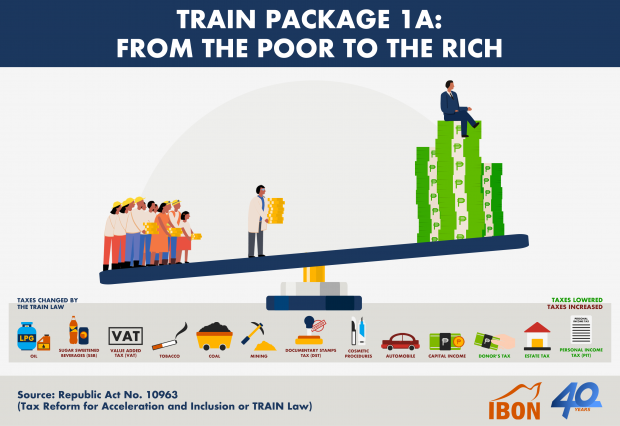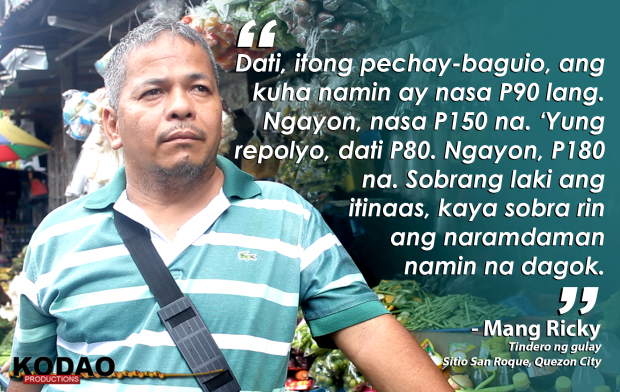Research group IBON said that inflation has not tapered off as government projected but has accelerated in September, highlighting government’s continued neglect in addressing rapidly rising prices of goods and services.
The group said that government continues to push failed neoliberal measures, while feigning concern for Filipino families struggling with a quickly falling purchasing power.
Sonny Africa, IBON executive director, said, “The purchasing power of Filipino families continues to fall because the Duterte administration is more concerned about managing the political backlash of rising prices than genuinely addressing the burden on the country’s poorest families.”
The Philippine Statistics Authority (PSA) reported that the headline inflation rate accelerated to 6.7 percent year-on-year in September 2018, higher than the 6.4 percent in August.
Africa said that this is also more than double the 3.0 percent in the same period last year and over five times the 1.3 percent in June 2016 at the start of the Duterte administration.
The inflation rate for the poorest 30 percent of families is however likely even higher and some 8.5 percent or more.
Africa said that inflation has not moderated because the government refuses to suspend implementation of the Tax Reform for Acceleration and Inclusion (TRAIN) law or to implement price ceilings on basic necessities and prime commodities.
“Doing these would have sent a strong signal of the administration’s sincerity in addressing rising prices and would bring immediate relief for tens of millions of Filipinos,” stated Africa.
Instead, inflation has already eaten up thousands of pesos in the purchasing power of the incomes of the poorest households who are already under-consuming and have low standards of living as it is.
Africa estimated that each of the country’s poorest 30 percent of households have lost at least Php1,800 to Php2,916 already from the start of the year until September due to inflation.
These are households assumed to be earning some Php12,835 or less monthly.
Less poor and middle income households have also seen their purchasing power eroded.
The next 30 percent of households have lost Php3,418 to Php4,725 since the start of the year.
These are the households earning up to around Php21,119 monthly.
IBON estimates the erosion of purchasing power by deflating household incomes with reported monthly inflation rates.
The impact on the poorest households is also underestimated by the unavailability of inflation rates for low income groups.
The administration has been promoting measures such as importation of agriculture products and the public utility vehicle modernization as ways to mitigate high inflation.
But Africa said that these government measures are tepid because the economic managers only see the numbers as cold statistics and callously insist that the situation is manageable.
“The measures are weak, slow to take effect and oblivious to the worsening conditions of tens of millions of the poorest Filipinos,” said Africa.
Africa also said that lower inflation in the National Capital Region (NCR) may reflect how the government is just managing the political impact of inflation.
“Reported NCR inflation of only 6.3 percent could be because the administration diverted food supplies to NCR to lower food prices here but at the expense of the regions,” said Africa.
Food inflation in non-food producing NCR is conspicuously moderated. There was a just 0.6 percentage point increase in NCR versus 1.5 percentage point increase outside NCR, and 1.2 increase nationwide.
“The government should provide real relief to millions of poor Filipinos and middle class. This includes immediate price controls, stopping TRAIN’s consumption taxes, and a meaningful wage hike. Steps must also be taken to strengthen domestic agriculture and Filipino industry,” he said. #


